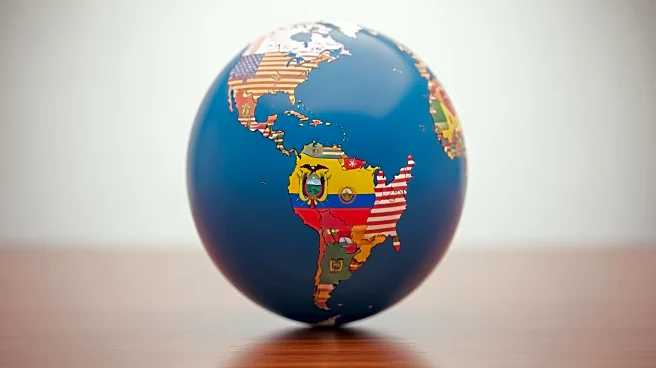What's Happening?
Ecuador has decided not to prosecute a man who survived a U.S. military strike on a vessel in the Caribbean Sea. The decision comes despite the Trump administration's classification of suspected drug smugglers as 'terrorists,' justifying military action
against them. The strike, part of a broader campaign against Venezuelan drug cartels, resulted in two deaths and the rescue of two survivors. The U.S. opted to repatriate the survivors to their home countries rather than detain them at Guantánamo Bay or prosecute them in the U.S.
Why It's Important?
This development underscores the complexities and controversies surrounding the U.S. military's approach to combating drug smuggling in the Caribbean. The decision by Ecuador not to prosecute the survivor highlights potential diplomatic tensions and differing legal perspectives on the use of military force in such operations. The Trump administration's aggressive stance raises questions about the balance between national security and international law, as well as the implications for U.S. relations with Latin American countries.
Beyond the Headlines
The use of military force in anti-drug operations raises ethical and legal concerns, particularly regarding the classification of individuals as 'terrorists' and the justification for lethal action. The decision to repatriate rather than prosecute the survivors may reflect broader geopolitical considerations and the desire to maintain diplomatic relations. This case also highlights the ongoing debate over the role of the military in law enforcement and the potential for human rights violations in such operations.
















